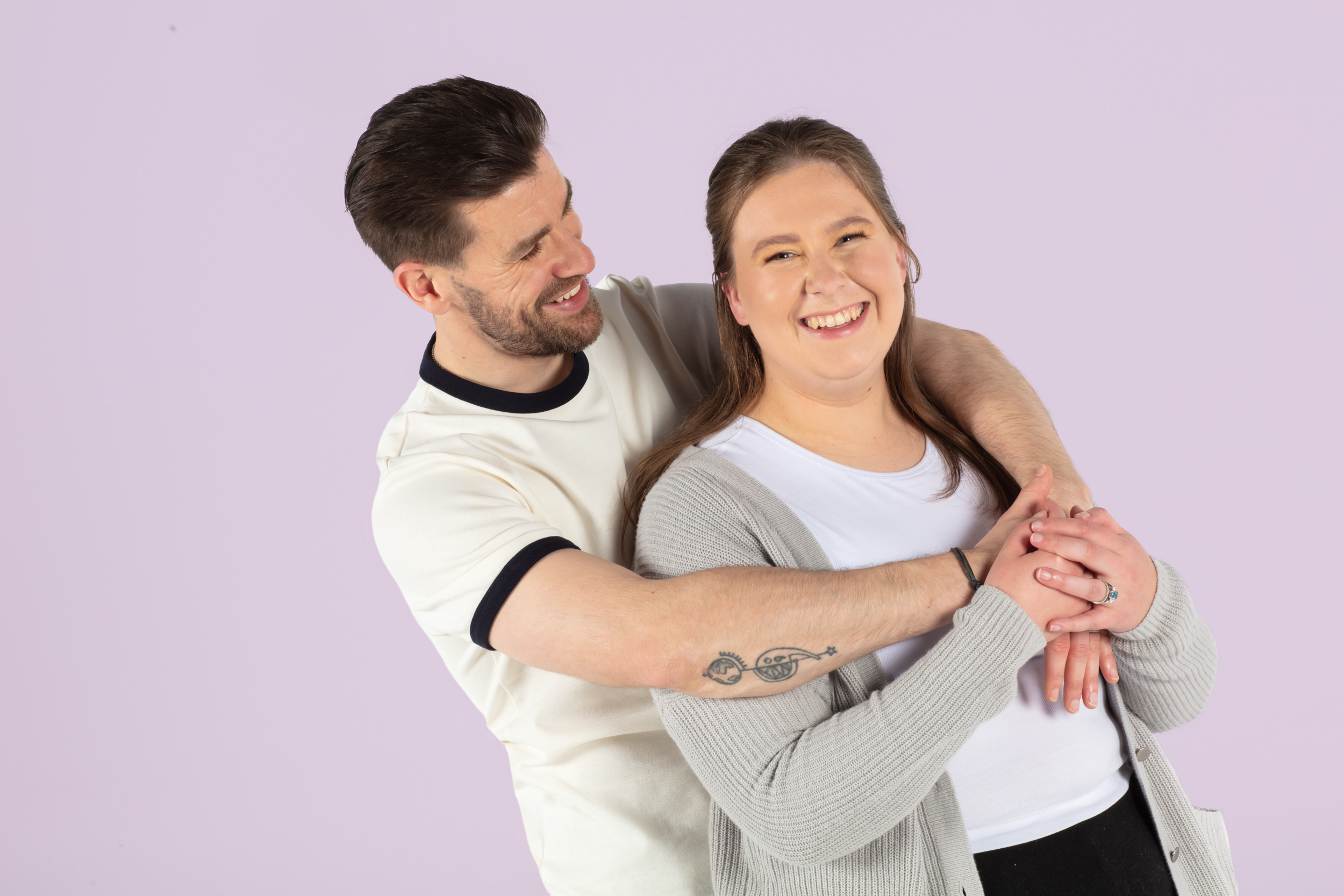Intimacy with a stoma
You probably won’t be feeling in the mood right after stoma surgery. Plus, there are a few extra things to think about before you plan to get intimate. But sex and intimacy matter. And whether you’re married, in a long-term relationship, or looking to start dating with your stoma, there are a few things that can help boost your sex life after stoma surgery.
Adjusting to your body after surgery can take time, and it’s completely normal to have concerns about body image, confidence, and intimacy. Learning to love and accept your body is an important part of the journey – your stoma doesn’t define you, and it certainly doesn’t take away your ability to enjoy closeness and connection. Feeling comfortable in your own skin starts with self-care, open communication, and finding what makes you feel good.
Talk it out
If you’re in a relationship, talking with your partner can help you build trust and feel more comfortable after surgery. It also helps them to understand how you’re feeling and eases any pressure you might feel, too. The sexual function for both men and women can sometimes be affected for a short period after surgery. So, if you’re not feeling like getting frisky, know that it’s perfectly normal – and it’s not likely to last forever!
Recovery (with benefits)
How long it takes to get back under the sheets after your surgery will depend on the type of stoma surgery you’ve had. But that doesn’t mean that all forms of intimacy are off limits. Touching, kissing, cuddling, and sharing a bed are sometimes under-rated, but they’ll all help you build intimacy while you’re in the recovery phase.
Sex prep
Ready to dive back in? There are a few things that can help you boost your sex life after stoma surgery. They can also help you feel more comfortable and relaxed, too. Here’s what you need to know:
- Empty or change your stoma pouch before you dive into any sexual activity. Be mindful that your stoma is most likely to be active 1-1.5 hours after you eat!
- Find out if you can opt for a smaller, more discreet pouch for intimate moments.
- You can also treat yourself to some specialist underwear to keep things comfy while you ease back into intimacy with your stoma. Or, slip into a silk cami top or vest – perfect for covering your torso and making you feel fabulous as you get back to the business of love!
- There are also specially designed support bands that will keep your pouch discreet during intimate moments.
- Experiment with different positions to find the ones you both like best and what is right for you!
- If you feel comfortable doing so, don’t be afraid to reach out to your stoma care nurse, they can offer more support and encouragement.
Pick your protection: choose contraception after surgery
Wondering if having a stoma can impact different forms of contraception and family planning? In most cases, it doesn’t. You’ll be able to choose your preferred method, just like before. But – and here’s the catch – you’ll need to consider a few factors before you pick which method will work best for you after surgery. We’ve rounded up the info you need to make an informed decision below.
The contraceptive pill
The birth control pill is safe to use after stoma surgery, providing you don’t have any other medical reason not to. But depending on the type of stoma surgery you’ve had, there are a few things you’ll want to watch for to make sure it works effectively.
For colostomates
Pay close attention to the consistency of your bowel movements and be aware of foods that may upset your digestive system. Loose stools may lead to the pill or the morning after pill not being absorbed properly, which means you’re at a greater risk of becoming pregnant. If you’re worried that your pill may not be absorbed or working effectively, play it safe and reach for an extra layer of protection, like a condom. If you’ve taken the morning after pill but notice you have loose stools or diarrhoea, get in touch with your GP as soon as possible.
For ileostomates
There’s some evidence that birth control pills might be less effective for people with ileostomies. This all comes down to absorption – which can be less reliable with an ileostomy. Because the medication passes through your digestive system quickly, without being fully absorbed into your body, it can decrease the contraceptive pill’s effectiveness. So, if you’ve got an ileostomy or ileo-anal pouch, you might need to get your dose adjusted if your small bowel isn’t absorbing the contraceptive pill. You can also up your protection by using an extra barrier (like a condom) alongside the contraceptive pill. Or, you might want to – or need to – consider other methods of contraception altogether.
The most important thing to know is that you have options. And you can speak with your GP, your stoma care nurse, or your family planning clinic to find a birth control method that’s the best fit for you.
IUDs, diaphragms, and more
Some types of stoma surgery can change the anatomy of the vagina and uterus. Yes, really. Unless you have any other health condition, this isn’t something to worry about. But it does mean that some forms of contraception might not be a good fit (literally). These include diaphragms, caps, intrauterine devices (IUDs), and coils. To find out if these are a no-go, you can ask your surgeon if there have been any changes to your anatomy that might make it difficult to insert, or retain, these forms of contraception.
Condoms
Having difficulty with other barrier methods? Condoms are your go-to. Providing you use them correctly, they’re highly reliable, and your stoma surgery won’t impact their effectiveness.
The help you need when you want it

You deserve to be the best version of yourself. And if you need some help along the way, there’s an incredible community of straight-talking ambassadors to give you support when you need it.


